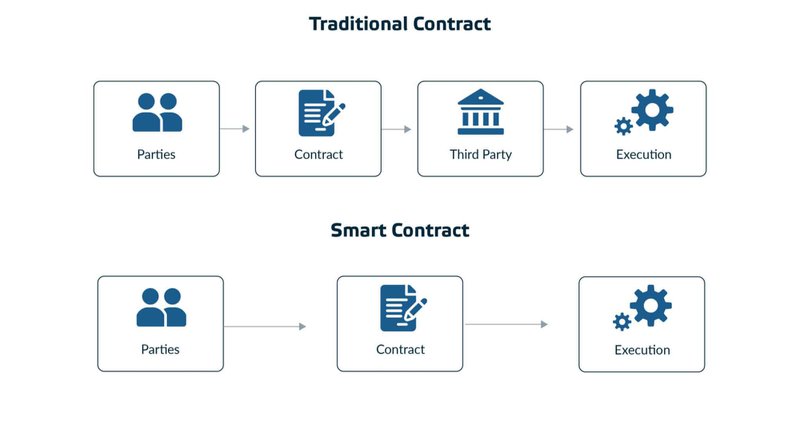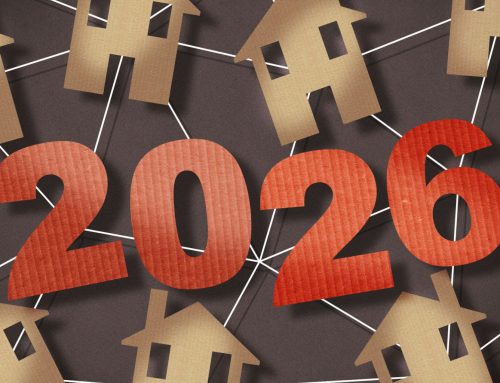In recent years, blockchain technology has emerged as a game-changer, disrupting various sectors, including real estate. Traditional real estate transactions have long grappled with inefficiencies, high costs, and opacity. However, blockchain's advent promises to revolutionize the real estate landscape, ushering in transparency, efficiency, and security like never before.
Blockchain Basics: Decentralization and Transparency
Blockchain technology serves as a decentralized and tamper-proof ledger, fundamentally changing how real estate transactions are recorded and validated. Traditional systems are centralized, making them susceptible to manipulation, whereas blockchain's decentralized network ensures security and reliability.

REAL ESTATE MARKETING NEWS
Receive directly into your inbox!
Receive news about Real Estate Marketing, trend & analysis, tutorials... Let's subscribe today it's totally free and may help you to boost your business!

In real estate, this means streamlined processes from property listings to title management. Blockchain eliminates intermediaries, automates transactions, and ensures transparency. Property listings are stored on the blockchain for easy access, while smart contracts facilitate title transfers, reducing time and costs.
Overall, blockchain's decentralized nature and automation make it a powerful tool for revolutionizing real estate transactions, offering transparency and efficiency.
Enhancing Transparency: Blockchain's Role in Real Estate
One of the most significant advantages of blockchain technology in real estate is its ability to enhance transparency. Unlike traditional systems where transactions are recorded in siloed databases, blockchain operates on a shared, accessible ledger. This means that every transaction, from property purchases to title transfers, is recorded and stored in a decentralized network.
This decentralized nature eliminates the need for middlemen and intermediaries, such as brokers or escrow agents, who typically oversee transactions in traditional real estate processes. Without these intermediaries, there are fewer opportunities for manipulation or fraud, as every change made to the blockchain is transparent and traceable. This transparency provides stakeholders, including buyers, sellers, and regulators, with an indisputable record of ownership and transaction history.

Furthermore, because blockchain transactions are immutable, meaning they cannot be altered or deleted once recorded, stakeholders can have confidence in the integrity of the data. This immutable record ensures that property ownership and transaction history remain tamper-proof and reliable, reducing the risk of disputes or discrepancies.
In essence, blockchain technology revolutionizes transparency in real estate by providing a secure and transparent platform for recording and verifying transactions. By eradicating the need for intermediaries and offering an immutable record of ownership, blockchain enhances trust and confidence in the real estate market, ultimately benefiting all parties involved.
Efficiency Redefined: Streamlining Real Estate Transactions
Blockchain technology promises to significantly reduce the time and costs involved in real estate transactions. Traditionally, these processes are burdened with multiple intermediaries, such as brokers and lawyers, leading to unnecessary complexities and expenses. However, blockchain introduces smart contracts that automate various transactional aspects, including ownership verification, payment execution, and title transfers. This automation simplifies operations and dramatically reduces costs, making real estate transactions more efficient and accessible.
Revolutionizing Property Management: Blockchain's Promise
Blockchain holds the potential to revolutionize property management and title registration. It provides a secure and efficient platform for recording and transferring property titles, offering benefits such as tamper-proof records and transparency.
Traditional property management and title registration processes are often prone to errors, fraud, and disputes. However, blockchain-based land registries mitigate these risks by maintaining tamper-proof records of ownership. Through decentralized ledger technology, every change to property titles is transparent, traceable, and immutable, reducing the likelihood of fraud or disputes.
By leveraging blockchain technology, property management becomes more efficient and secure. Blockchain-based land registries streamline the transfer of property titles, ensuring that ownership records are accurate and reliable. Ultimately, blockchain promises to transform property management by providing a trusted and transparent system for recording and transferring property titles.
Democratizing Real Estate Investment: The Power of Tokenization
Blockchain introduces the concept of tokenization, which has the potential to democratize real estate investment. Through tokenization, real estate assets are divided into digital tokens, allowing investors to purchase fractional ownership stakes in properties.
This process lowers entry barriers to real estate investment, enabling individuals to invest in properties with smaller amounts of capital. Additionally, tokenization enhances market liquidity by facilitating easier buying and selling of real estate assets.

By leveraging blockchain technology, tokenization opens up new opportunities for a wider range of investors to participate in the real estate market, ultimately democratizing access to real estate investment and expanding investment possibilities.
Challenges Ahead: Navigating Regulatory and Technical Hurdles
While blockchain holds immense promise for revolutionizing real estate, widespread adoption still faces significant hurdles. Regulatory complexities and technical challenges pose immediate barriers to its integration.
Regulatory frameworks surrounding blockchain technology in real estate are still evolving, with legal and compliance issues needing clarification. Additionally, technical hurdles, such as scalability and interoperability, must be addressed to ensure seamless integration into existing systems.
However, as the technology matures and stakeholders become more familiar with its capabilities, greater blockchain integration in real estate transactions is foreseeable. Overcoming these challenges will require collaboration between industry players, regulators, and technology experts to develop solutions that ensure the efficient and compliant use of blockchain in real estate transactions.
In summary, blockchain technology presents an unprecedented opportunity to revolutionize the real estate sector by offering unparalleled transparency, efficiency, and security. Embracing blockchain opens new avenues for innovation and value creation, ultimately fostering a more transparent, efficient, and accessible real estate market for all stakeholders.
Stay updated on the latest trends in real estate digital marketing and more by following Remarso. As the industry evolves, Remarso keeps you informed about cutting-edge developments, ensuring you stay ahead of the curve. With Remarso, you'll gain valuable insights into leveraging technology to optimize your real estate strategies and stay competitive in today's dynamic market.
With blockchain technology continuing to shape the future of real estate, now is the time to join the conversation and explore the transformative potential it offers. Follow Remarso today to be at the forefront of innovation and discovery in the real estate industry.






